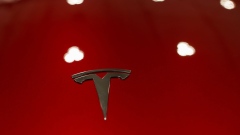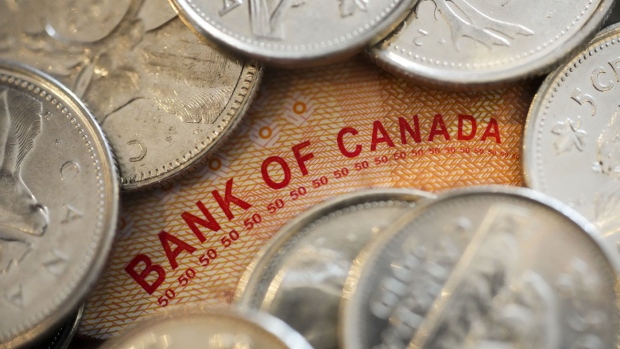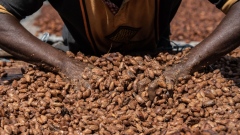Jul 12, 2018
Croatia’s World Cup Success Is No Fluke
, Bloomberg News
(Bloomberg Opinion) -- Three of the four teams that reached the world cup semifinals represent Western European societies struggling with immigration and integration. But the fourth and most surprising consists entirely of local boys from a tiny country. Croatia’s success has different origins than that of its rivals: In that country, soccer is more than a game. It’s fed a war, the nation-building that followed – and the post-victory comedown, which, perversely, may have led to its squad’s stunning achievement.
For a country with a population of 4.2 million, Croatia is spectacularly successful at sports. Besides soccer, it’s got top flight teams in handball, water polo and basketball, and Croatian tennis players are part of the global elite. In part, this probably has to do with genetics: Croats (and their neighbors from Serbia and Bosnia) are among the tallest people in the world, and many are naturally athletic. There are thousands of sports clubs, most of them left over from former Yugoslavia’s achievement-oriented sports project (although some locals worry that this infrastructure is dying off).
Soccer, however, is a special case. A May, 1990 riot at Zagreb’s Maksimir Stadium that stopped a game between local Dinamo and Red Star from Belgrade was, to many Croatians, the beginning of the war that established their country as a separate state. The Serbian fans were led into the riot by Zeljko Raznatovic a.k.a. Arkan, the future war criminal; police, considered an instrument of the Serb-led Yugoslav state, intervened too late and focused on the hardcore Dinamo fans – the Bad Blue Boys, as they call themselves. A Dinamo player, Zvonimir Boban, got into the fight to help a fan. His act became a symbol of resistance to Croats.
At another soccer game, between Hajduk Split and Partizan Belgrade, in September 1990, Hajduk’s hardcore fans, the Torcida, burned the Yugoslav flag and chanted, “Croatia – independent state.”
“If the Maksimir riots are interpreted as the ‘day the war started,’ then this game had to be termed as the ‘day Yugoslavia stopped existing’ (at least on sporting grounds) with the symbolic burning of the most meaningful national symbol which signaled a total lack of state legitimacy,” wrote Dario Brentin of Graz University in Austria, who has studied the links between soccer and politics in the Balkans.
Franjo Tudjman, the nationalist leader at the head of the independence drive, used the soccer fan organizations’ radicalism to drive his message and soccer itself to acquire legitimacy for an increasingly independent Croatia. In October 1990, a game between a selection of Croat players and the U.S. national team was seen as the secessionists’ major diplomatic success. Athletes, including soccer players, continued serving as Tudjman’s informal ambassadors throughout the ensuing war. And once it was won (nationalist soccer fans, of course, had been among the first to volunteer), Tudjman – who proclaimed that “after war, sport is the first thing by which you can distinguish nations” – continued attaching major importance to soccer.
In 1998, when Croatia, unexpectedly for all but its diehard fans, won third place in the World Cup, Boban, the team captain and national hero, praised Tudjman as “father of all things we Croats love, also the father of our national team.” Tudjman centralized soccer governance and sometimes would even interfere in coaching decisions; to him, soccer was a weapon and a tool for building a national identity bot for domestic consumption and for a world that wasn’t particularly interested in distinguishing between “former Yugoslav” states.
Tudjman died in 1999, but his state-building project was successful enough eventually to get Croatia into the European Union (it acceded in 2013). Still, the country was and remains no stranger to post-Communist corruption, and in recent years, much of the Croatian soccer story has been about graft. In early June, Zdravko Mamic, former chief executive of Dinamo Zagreb and the unofficial boss of Croatian soccer, was sentenced to six-and-a-half years in prison for diverting some $18 million from players’ transfer fees. Dinamo sold its top players, including Luka Modric, the star of the current national team, through an agency run by Mamic and his brother.
Mamic fled to Bosnia, which doesn’t have an extradition treaty with Croatia. Modric is accused of perjuring himself during the Mamic trial, at which his testimony could have helped the soccer boss. Another Croatia star, Andrej Kramaric, refused to sign a contract like Modric’s, according to which Mamic’s agency would have been entitled to part of his transfer fees. The fans, who have waged a war in recent years to end corruption in Croatian soccer and get more of a say in how the clubs are run, again are at the forefront of a political battle – this time against Croatia’s crony capitalism; to them Kramaric is a hero and Modric is a traitor.
Indirectly, the corruption in Croatian soccer may have contributed to the current national team’s strength. Almost all of its members play for elite European clubs; it’s been in Croatian club bosses’ interest to sell them off at the best price rather than to retain them, and the players ended up getting varied experience in Europe’s top soccer leagues. Today, they are confident pros without any inferiority complexes linked to their country’s size.
It’s unclear whether Croatia can be as strong when this generation of stars retires. The country’s economy is suffering from years of mismanagement. With youth unemployment at 33 percent and the heavily indebted government too deeply involved in key industries, the country can hardly sustain the training system it inherited from socialist times. While soccer fans remain a political force, with all their nationalist warts and anti-capitalist pathos, the fervor of the 1990s no longer determines the political landscape.
Yet that fervor appears to be back to some extent as the country celebrates the soccer team’s victories. This may be the last war for a while that the national squad is winning, but the memories of the time when soccer was more than a game still live. That’s why Croatian President Kolinda Grabar-Kitarovic is the only national leader at the World Cup to wear the national colors and make a convincing show of supporting the team rather than carrying out a diplomatic function. The Tudjman-era legacy, the realization that sometimes a sports team’s performance may be existentially important for a nation, isn’t quite gone.
Croatia’s success lies at the crossroads between professionalism forged in English, German, French, Italian and Spanish leagues and the fierce spirit of the 1990s. This is a combination that left England by the wayside and can be fearsome even to the seemingly unbeatable French squad in Sunday’s final.
To contact the author of this story: Leonid Bershidsky at lbershidsky@bloomberg.net
To contact the editor responsible for this story: Jonathan Landman at jlandman4@bloomberg.net
©2018 Bloomberg L.P.























